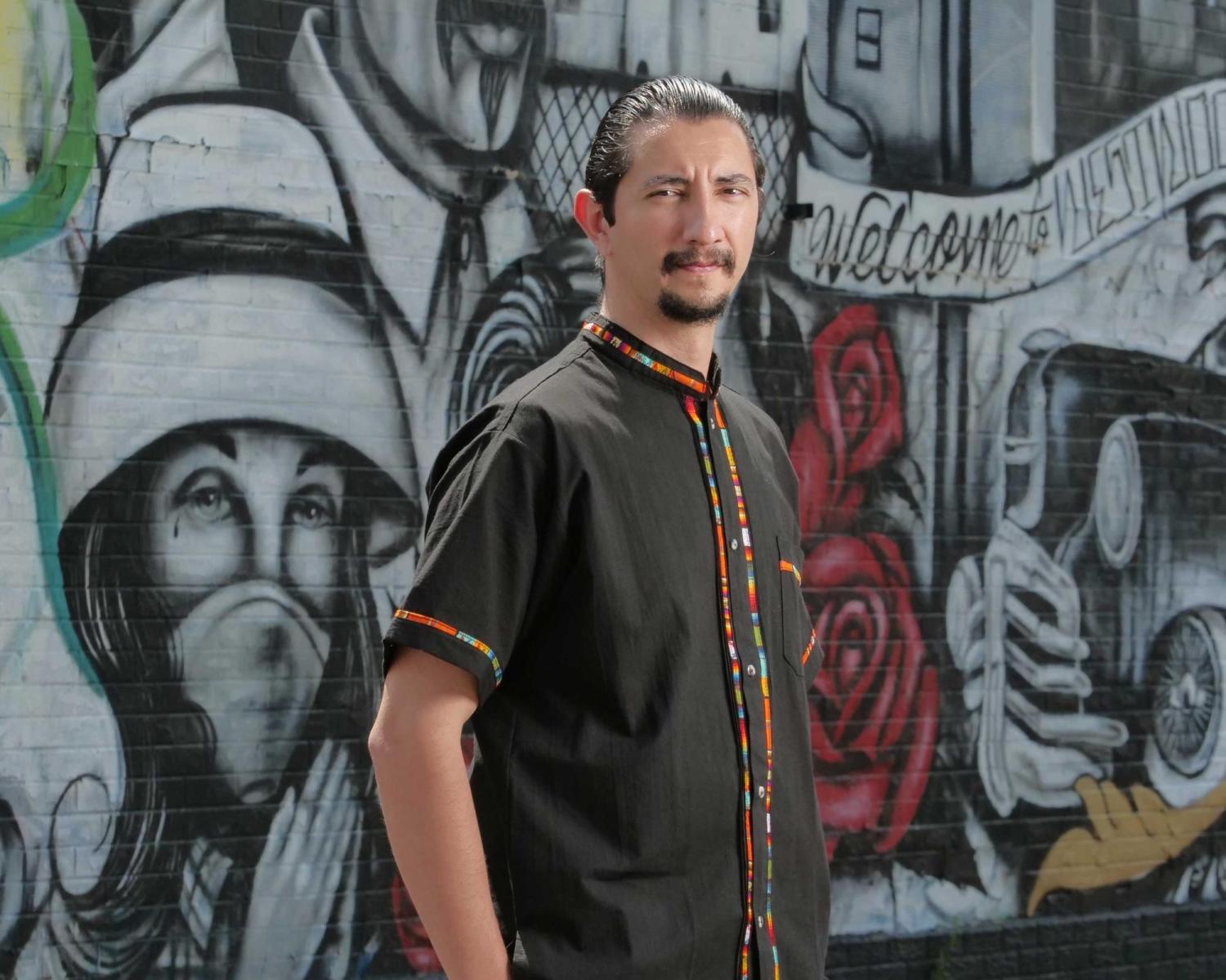Giving Voices to Hidden Histories
“I ended up coming to CU Boulder because I had learned the story of Los Seis,” Romero said.
During his senior year at CU Boulder, he joined what was then known as the Boulder County Latino History Project as an intern videographer and joined community members to record oral histories of Boulder County families. There he interviewed Augustine Cordova, a Chicano who had attended CU Boulder during the 1970s. Cordova recited to him the corrido of Los Seis de Boulder, a ballad he wrote about the bombings.
Romero had never heard about this ballad. The interview was an impactful moment during his internship and led him to continue working with the project after graduation, leading workshops for teachers in the summers. In 2020, he joined the project as the executive director and has continued to guide the work in the community and in schools.
Now, the newly renamed Chicano & Latino History Project, housed in CU Boulder’s BUENO Center for Multicultural Education, partners with communities across Colorado to gather, preserve and make available information about the history and culture of local people of color.
The project has evolved over the years—first known as the Boulder County Latino History Project when it started in 2013, it later expanded statewide and became the Latino History Project. This summer, the program name changed to Chicano & Latino History Project to recognize the historical impact of the Chicano movement on the communities in Colorado.
“Being someone who is a Chicano from Colorado, I think it is important to recognize that labels matter,” Romero said. “Names are important.”
“(The Chicano movemen) opened all of the doors to be able to study these histories and to give voice to these hidden histories.
I’m excited to be able to acknowledge and honor and respect the contributions of Chicanos. That’s our family.”
In addition to uncovering stories in Colorado, the Chicano & Latino History Project also hosts workshops and professional development opportunities for teachers and school districts, provides support around curriculum development, and hosts workshops in communities across Colorado.
“I would love for teachers to become more aware of our histories and think about how they can incorporate more local and community stories into their classrooms,” Romero said, “especially local histories that are untold and hidden away. That’s what I would want teachers to think about—how do we incorporate more of that?”
Learn about Chicano Latino history in Colorado
- Browse the Chicano & Latino History Project website for teaching resources
- Teachers and community members can access over 1,600 primary sources about Chicano and Latino families across Colorado
- Pay tribute to Los Seis
- During a period of student protests to demand equity in education at CU Boulder in 1974, six student activists died after car bombs exploded in Boulder. Alumna Jasmine Baetz created the campus’s Los Seis de Boulder sculpture in partnership with community members and surviving family members.
- Visit the original U.S./Mexico border
- Take a trip to El Pueblo History Museum, located along the Arkansas River (or Rio Nepesta), which once marked the border between the United States and Mexico.
- See and recognize murals by Chicano and Latino artists
- The Chicano/a/x Murals of Colorado Project protects, promotes and preserves the legacy of murals.


